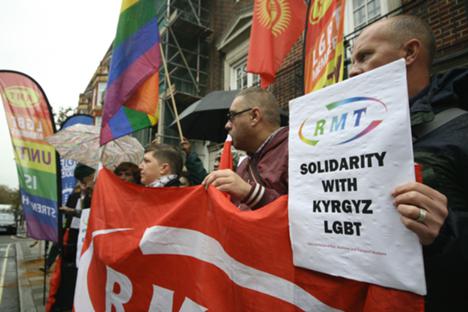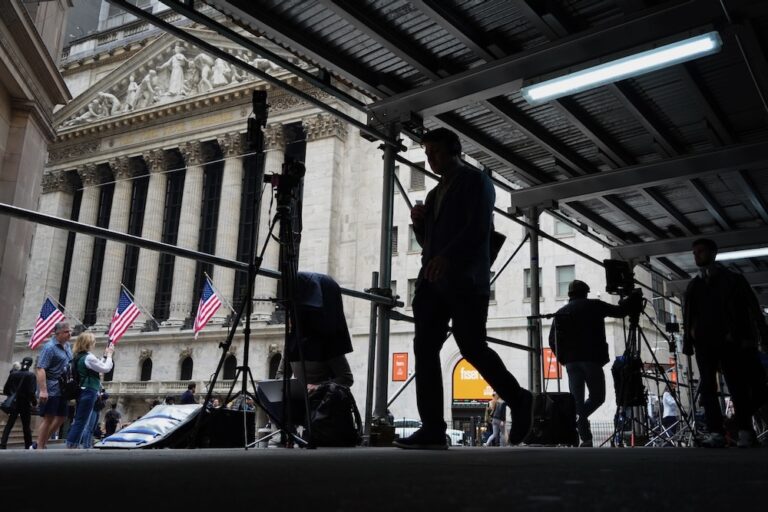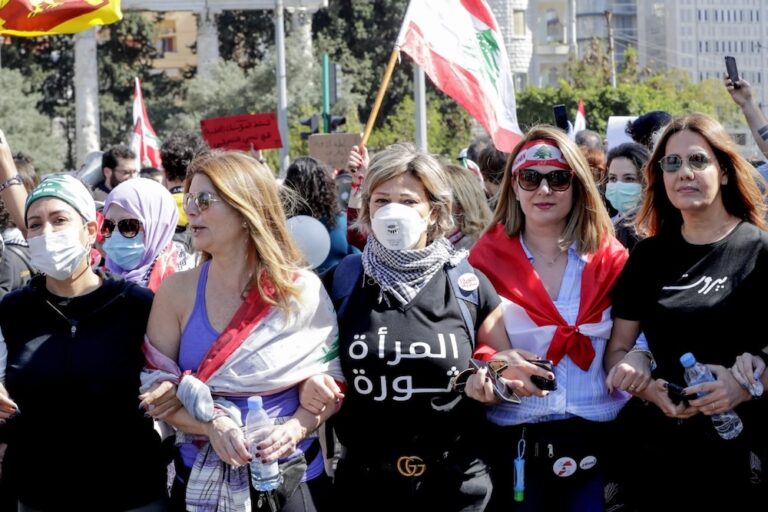These discriminatory laws deny the rights of all people to freedom of expression, association and assembly, and give license to violence, extortion and serious discrimination.
This statement was originally published on PEN International’s PEN/OutWrite platform on 15 May 2015.
In recent months and years, several countries, as well as cities and provinces within countries, have introduced legal prohibitions on “homosexual propaganda”. These repressive pieces of legislation join an array of laws elsewhere which are used to repress the freedom to express positive views about members of the Lesbian, Gay, Bisexual, Transgender, Queer and Intersex (LGBTQI) community or even impose a ban on same-sex practices and gender variance.
In the name of protecting “public morals” or “traditional values,” such laws attempt to silence LGBTQI individuals and their supporters, effectively denying their right to freely express their sexual orientation and gender identity, and stifling their right to give and receive information about issues of sexual orientation and gender identity.
Prominent among such laws are the following:
In June 2013, the State Duma of the Russian Federation, defying international criticism, passed the so-called “gay propaganda” law, prohibiting and criminalizing the “propaganda of non-traditional sexual relationships among minors.” Cast as a general law respecting public morality, the legislation bans any activity that can be construed as promoting a positive or neutral image of same-sex relations or the “promotion of denial of traditional family values among minors.” The law also bans any portrayal of a heterosexual family that can be seen as negative, as well as creating administrative penalties in the form of fines, suspensions for legal entities and deportation for foreign nationals.
A “gay propaganda” law, similar to the Russian law but broader in scope, is currently before the Kyrgyzstan Parliament. If passed it would impose criminal sanctions for the dissemination of information on non-traditional sexual relationships, in particular activities directed at the formation of a positive attitude towards such relations. It would restrict freedom of expression and freedom of assembly within the LGBTQI community by restricting “the organization of and participation in peaceful gatherings that aim to make available to society any information regarding positions on any form of non-traditional sexual relations.” Justified as necessary to “safeguard and protect the traditional family, human, moral and historical values of Kyrgyz society,” the bill would introduce fines and prison sentences of up to a year for repeat offenders.
Nigeria has also targeted the LGBTQI community with its Same Sex Marriage (Prohibition) Act. This explicitly discriminatory legislation not only imposes a prison term of 14 years for entering into a same sex marriage contract or civil union, but goes beyond that to criminalize registering, operating or participating in gay clubs or organizations and supporting any such club or organization, offences punishable by a 10-year prison sentence.
In Iran, not only is consensual same-sex sexual activity illegal and can even lead to the death penalty, but those who are regarded as behaving or dressing in ways that do not conform to officially sanctioned gender stereotypes can face arbitrary arrest and imprisonment as well as torture and other ill-treatment including the cruel punishment of flogging. Even those who write about the existence of the LGBTQI community in Iran face reprisals: Siamak Ghaderi was released in July 2014 after serving a four-year sentence imposed in connection with blog entries he posted, including a piece in which he interviewed several Iranian homosexuals. The article was an apparent reaction to former President Mahmoud Ahmadinejad’s public assertion that “there are no homosexuals in Iran.” He also received 60 lashes, reportedly imposed for “cooperating with homosexuals”.
Such discriminatory laws deny the rights of all people to free expression, association and peaceful assembly, contrary to the International Covenant on Civil and Political Rights. These rights are now regarded as part of customary international law. These laws give license to violence, extortion, serious discrimination and other grave violations of their human rights.
Alarmingly, where violence ensues, such laws will prohibit individuals from speaking out against it. In this regard, PEN International is particularly concerned at the increase in the numbers of cases it has documented in 2014 of writers from the LGBTQI communities in countries including Iran, Somalia and Nigeria who are seeking assistance to reach places of safety abroad, reflecting rising levels of persecution in their countries of origin.
The Assembly of Delegates of PEN International:
- Demands that all states which have enacted laws or introduced bills which prohibit free discussion about LGBTQI individuals and communities, including in particular the states of Iran, the Russian Federation, Kyrgyzstan and Nigeria, repeal or reject those prohibitions.
- Denounces the adoption of laws that ban the dissemination of information about sexual orientation and gender identity.
- Demands that all individuals who have been convicted of offences under such laws have their convictions overturned and excised from the record, have any fines charged against them refunded to them, and be given redress for the violation of their human rights.
- Demands that the governments of all states confirm their commitment to respect and protect the rights of all in accordance with their obligations under international human rights law to protect the rights of all people, including LBGTI people, to freedom of expression, association, and peaceful assembly.
- Welcomes the landmark UN Human Rights Council resolution to combat violence and discrimination based on sexual orientation and gender identity (L.27/Rev.1) passed on 26 September 2014, and urges the Council to maintain its prioritisation of this critical human rights issue.
PEN/OutWrite, developed and launched by PEN International, is a platform where LGBTQI (Lesbian, Gay, Bisexual, Transgender, Queer and Intersex) writers worldwide can raise their voices, inform public debate, create dialogue and highlight the challenges that they face.
Click here to visit the website.



